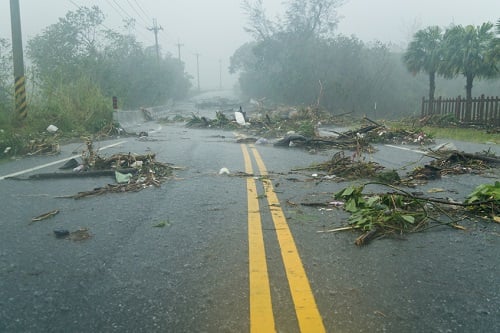

Andrew, Katrina, Charley, Dennis and Wilma … they sound like the friendly family next door with the old SUV and the basketball hoop in the driveway. But nothing could be further from the truth.
They’re all hurricanes that made landfall in the US, leaving catastrophe and significant re/insurance challenges in their wake. Of course, the US is not shy of super storms and steps have been taken to mitigate potential damage from hurricanes and severe flooding.
However, it just isn’t possible for man to tame the beast of nature. Last week we reported on global reinsurer Swiss Re publishing a report revealing that if Hurricane Andrew were to strike Florida again today, the losses would dwarf those experienced 25-years-ago ($80-100 billion compared to $26.5 billion), despite better catastrophe modelling and risk mitigation.
Minimizing the potential for hurricane damage is critical, but it requires a partnership that includes governments at all levels working hand-in-hand with residents and businesses, according to Marla Schwartz, atmospheric perils specialist at Swiss Re.
“On a smaller, practical level, there are of course simple measures to mitigate hurricane damage, like hurricane shutters and sealing any gaps around wires and cables that enter a structure,” Schwartz told Insurance Business. “On a much larger level, though, I’m concerned that when the next Andrew hits South Florida, storm surge losses will easily dwarf those from 1992. This growing concern stems from both sea level rise (which exacerbates effects of storm surge) and the concentration of coastal assets.
“Resiliency efforts to address this ever-increasing flood risk remains paramount for mitigating hurricane damages. Fortunately, Miami has embarked on an experiment to expand its flood protection program with sea pumps, improved road infrastructure and seawalls. These efforts must continue in order to best protect Florida from the next Andrew.”
Despite the serious flood and hurricane risks in Florida, there has been considerable development in coastal areas. High-rise (and often high-end) condominiums and commercial buildings are continually popping up in hurricane-prone and flood-prone areas along the coast.
“From a risk awareness perspective, it is critical to point out that hurricane-proof status is unachievable,” commented Schwartz. “Though Miami-Dade County maintains one of the nation’s highest wind standards when it comes to building codes, built-to-code does not translate to hurricane-proof.
“There are always limitations to design and retrofitting techniques, so it is impossible to know exactly how these high-rises will likely respond to the next Andrew. On a related note, though, damage surveys in South Florida after Hurricane Charley (2004) revealed structures built after Andrew suffered much less than older ones, suggesting an improvement in structural integrity.”
Clearly the insurance industry has learned lessons from past catastrophic events like hurricanes Andrew, Dennis and Katrina. Hurricane Andrew “completely changed the insurance industry’s perception of risk,” according to Schwartz. Its destruction led to the development of catastrophe models that are now fully embedded into the re/insurance industry.
The active back-to-back Atlantic hurricane seasons of 2004 and 2005 – including hurricanes Charley, Ivan, Katrina and Wilma – raised further questions about aggregate losses, limits and deductibles. Schwartz added: “Overall, the cumulative impact of the two seasons forced insurance and reinsurance companies to reconsider best practices in underwriting, contract wording and claims adjusting.” There is more for the industry to learn from every catastrophic event.
Related stories:
If Hurricane Andrew were to strike again today, the uninsured loss would be staggering
Swiss Re reveals global catastrophe loss estimates
